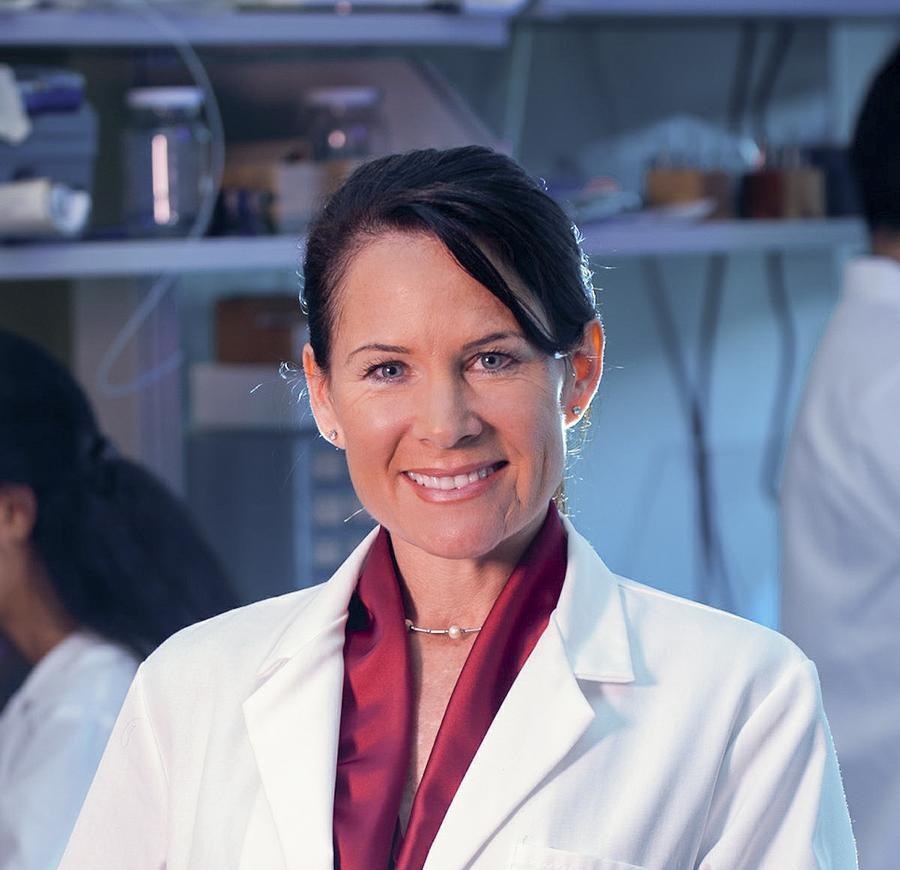
During the 20-year tenure of former Dean James Thompson, the College of Engineering saw its enrollment more than double and its research and education programs in bioengineering, computer science and information technology expand.
Thompson stepped down from his position September 2014. The college is under new leadership now.
Elizabeth Loboa, who is currently serving as chair of the biomedical engineering department at UNC-Chapel Hill and North Carolina State University, will officially take the reins of the MU College of Engineering as dean on Oct. 15 of this year.
“We are excited to have Elizabeth join the university,” Provost Garnett Stokes said in a news release. “As a renowned researcher and educator with comprehensive knowledge in biomedical engineering and economic development, as well as a passion for mentoring students, faculty and staff, she is well qualified to lead the College of Engineering at Mizzou.”
Loboa attended University of California-Davis for her undergraduate education where she earned a degree in mechanical engineering. After that, she attended graduate school at Stanford University, where she received a master’s degree in biomechanical engineering and her doctorate in mechanical engineering.
As she continued her education, the idea of becoming a professor sounded more and more appealing to her, Loboa said.
“The ability to teach and mentor incredible students, run an impactful research program and interact with fantastic colleagues sounded like my dream job,” she said in an email.
Upon receiving her doctorate, Loboa became an associate professor at Stanford for a year. That job eventually led her to North Carolina, where she was the first external hire for the joint department of biomedical engineering at UNC and NCSU.
Loboa spent 11 years as a professor at UNC and NCSU, and while she wasn’t actively looking to make the jump to become a dean, but when the position became available at MU, Loboa knew it was an opportunity she couldn’t pass up.
“The opportunity at Mizzou was the specific reason why I decided to become a dean,” Loboa said. “Mizzou Engineering is a great college with potential to be even greater. I am honored to have been selected to lead the college.”
Loboa said she also looks forward to working collaboratively with students and other programs across campus.
“The potential for interdisciplinary collaborations and cross-cutting technology development between the College of Engineering and other colleges and schools at Mizzou is fantastic,” Loboa said.
When she arrives at MU in October, Loboa said she plans on doing a “listening and learning tour” to learn about all of the departments within the College of Engineering.
“I am a believer in data-driven metrics, strategic planning, and openness and transparency in the decision making process,” Loboa said. “I will not initiate a specific agenda until I actually start my position and have all data in hand.”
Loboa also plans to use data-driven metrics to address the lack of gender diversity in the College of Engineering. Less than 20 percent of the engineering school is female, and according the Women in Engineering [website,](http://engineering.missouri.edu/women/) the school loses “substantial numbers of female students during their first year.”
Loboa will join a select group of female deans in engineering programs. According to the Beverly Willis Architecture Foundation, there are fewer than 30 across the country.
“The lack of women in engineering and their attrition is an unfortunate reality in many universities across the country,” Loboa said. “I hope that women in engineering at Mizzou take pride in the fact that their university hired a female dean of engineering and, along with the recent hire of a female provost, see that as yet another example of the commitment that I believe Mizzou has in this area.”